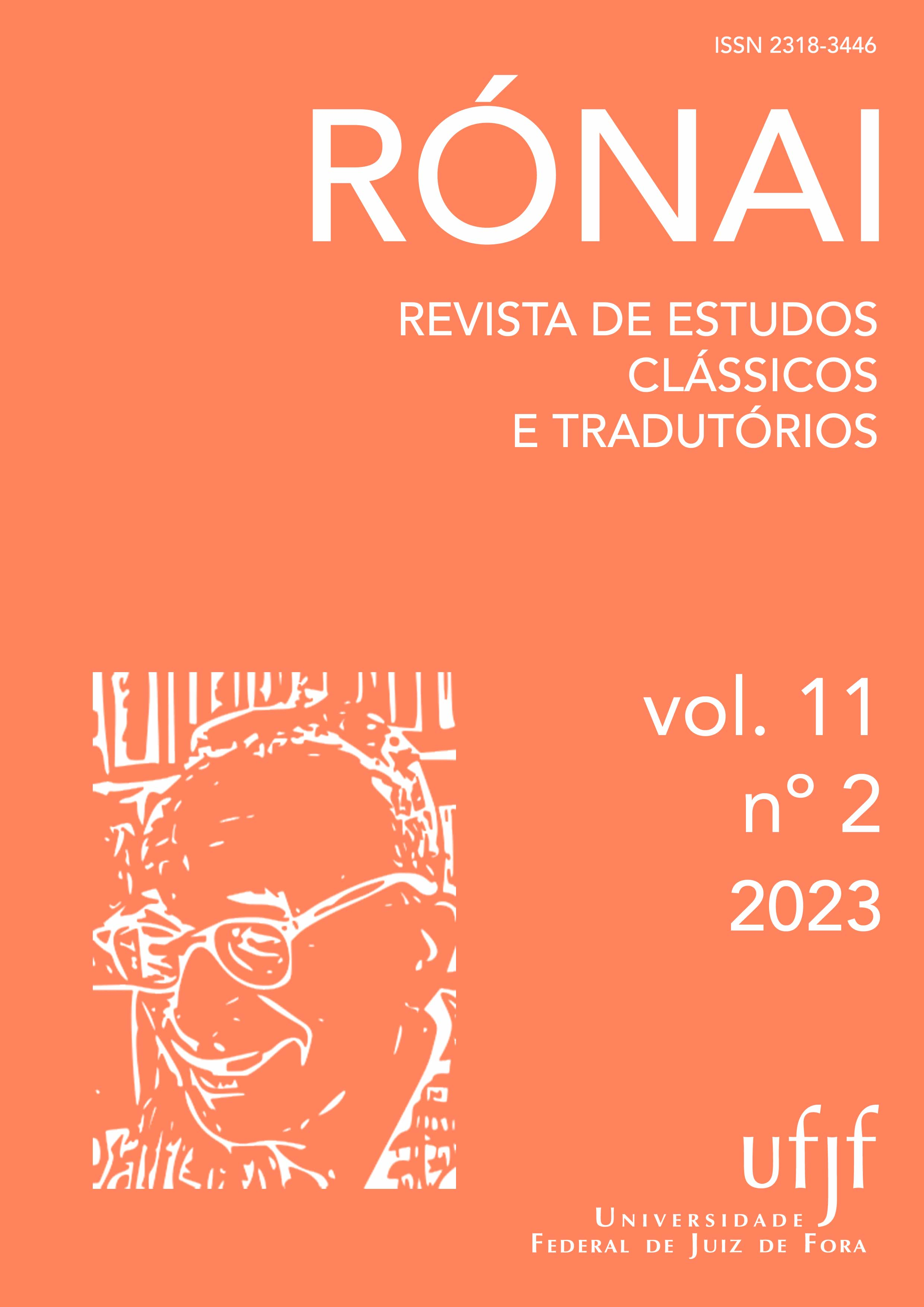Translation of Kurt Tucholsky's Was darf die Satire?
DOI:
https://doi.org/10.34019/2318-3446.2023.v11.41677Keywords:
translation, satire, Kurt TucholskyAbstract
This translation proposal aims to present a translation – from its original language – German – to Brazilian Portuguese – of the text entitled Was darf die Satire? The original text was published on January 27th, 1919, in the German newspaper Berliner Tageblatt (which ran from January 1st, 1872, to January 31st, 1939), one of the most influential of its time. Written by journalist, satirist, poet, and critic Kurt Tucholsky (1890-1935), who became renowned due to his satires, and who also wrote under the pseudonyms Peter Panter, Theobald Tiger, Ignaz Wrobel, and Kaspar Hauser. In Was darf die Satire?, signed by Ignaz Wrobel, Tucholsky, discusses satire and its limits and responsibilities. According to him, satire can do anything.
Downloads
References
LINDER, Birgit. Multiple Pseudonymities: The Affinity by Choice between Kurt Tucholsky and Kaspar Hauser. German Studies Review. Maryland, v. 34, no. 1, 2011, p. 45–68.
ROSZIK, Anderson Augusto. A crítica política e literária de Kurt Tucholsky e o início da República de Weimar (1919-1924). Dissertação (Mestrado em Letras). Programa de pós-graduação em Letras da Faculdade de Ciências e Letras de Assis – UNESP – Universidade Estadual Paulista, São Paulo, 2007.
TUCHOLSKY, Kurt. Was darf die Satire?. 1919. Projekt Gutenberg-DE. Disponível em: https://www.projekt-gutenberg.org/tucholsk/16satire/chap012.html. Acesso em: 29 mar. 2023.
TUCHOLSKY, Kurt. Rheinsberg: Impressões para os apaixonados. Tradução de Lilian Souza Dunley. Bremen: DNLY, 2022.
Downloads
Published
How to Cite
Issue
Section
License
Copyright (c) 2023 Dionelle Araújo

This work is licensed under a Creative Commons Attribution 4.0 International License.
Copyright
The authors of the published contributions agree with the following items:
1. The authors keep the copyright and convey to the journal the right of first publication, the work being licensed under a Creative Commons Attribution License 4.0 International.
2. The authors are allowed and stimulated to publicize and distribute their work online after the publication in the journal, recognizing first publication in this journal.
3. The authors of the approved works authorize the journal to distribute their content, after publication, for reproduction in content indexes, virtual libraries and similars.
For more information about Creative Commons Attribution License 4.0 International, please, go to: https://creativecommons.org/licenses/by/4.0/deed.en
Editorial exemption
The authors of the published contributions are entirely and exclusively responsible for their contents. Its content does not represent an official position of Rónai - Revista de Estudos Clássicos e Tradutórios neither of Faculdade de Letras da Universidade Federal de Juiz de Fora or their partner institutions.



